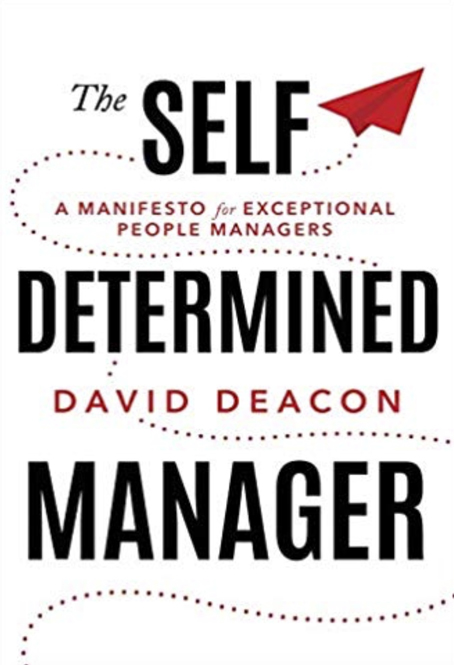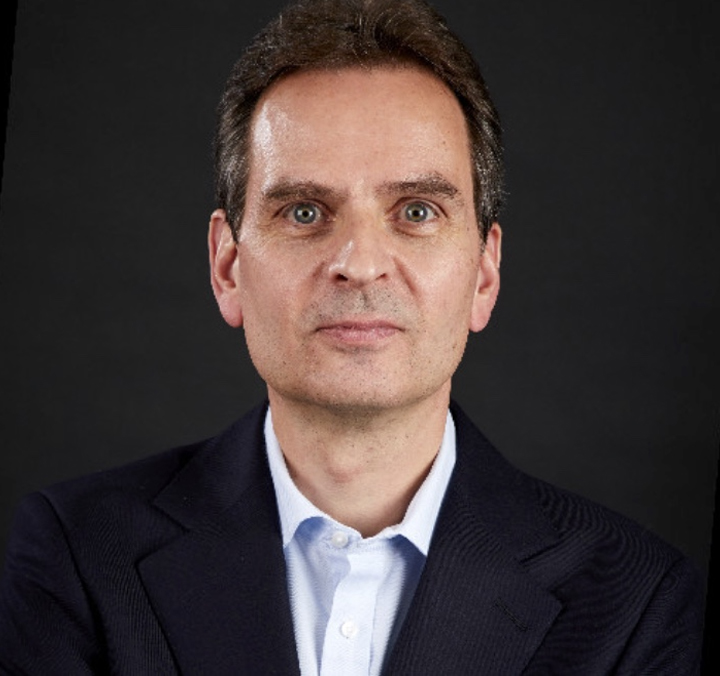Author of The Self Determined Manager and seasoned HR professional, David Deacon, explores how great managers create belonging and inclusion. In the last part of his series, exclusively for Fair Play Talks, he discusses the importance of ‘building fantastic teams’.
BUILDING FANTASTIC TEAMS
The best managers, the ones we all want to work for, are rare and rather wonderful. They are the ones who deliberately and consciously create inclusive, diverse and positive environments because they simply cannot imagine doing anything less. They are the ones who I describe as ‘self determined’ managers. When you think about your best-ever manager, chances are that they created a fantastic environment around you and made you more successful than you realised you could be. They found the way to give you wings and help you take flight.
In my last article (part 2), I wrote about how good they are with individuals and their approach to each of the people on the team – an approach that is personalised, human, wise and ambitious. It creates belonging and inclusion, and helps everyone to do amazing work. In my first column (part 1), I talked about how good they are at ensuring everyone’s voice gets heard, genuinely driving the involvement of everyone on the team, because it’s the right thing to do and it gets the best answers.
In this article, I want to focus on another really important thing that you see great managers do. They pay real attention to the way their team works, the dynamics of the interactions between them, and the norms and values that the team collectively lives by and lives within. As well as being great with the individual team members, there are some key things that the best managers do that create those positive environments where everyone can thrive.
CLOSE OBSERVATION
Firstly, they really watch the dynamics on the team. They closely observe the interactions, the relationships, the roles people play, the rivalries and alliances, the sub-currents and games. They pay attention to the collective motivations of the team, the things that they seem to have as a common purpose or aim. They can be very critical (and self critical) when it isn’t what they want. If you have ever worked in a team where the primary aim is to please the boss, or stay out of trouble, or avoid all open conflict, or to put people down subtly, or any of a myriad of other unhealthy and usually exclusive (i.e. non- inclusive) team environments, you will know that the manager is the only person who can truly influence and change that dynamic. They can shift it from negative to positive. They can get people back on track and working in the best possible way. They just have to do two things:
- They must see what is really going on, including whether they play a part in setting up that dynamic, and through observing their team spot exactly how things are working and the things that aren’t right (as well as the things that are) in that team dynamic. This is pure, clear-sighted, thoughtful, diagnosis. They see when there is a problem and they see what the problem is.
- Then they must describe what they see, in clear language, to the team. This step is so often missed. Maybe it’s because it needs some courage and some skill on the part of the manager. But the problem, whatever it is, cannot get resolved without the team themselves being aware, and most times only the manager can bring it to their attention. A great manager knows that a team needs to understand the damaging or toxic dynamic and needs to openly review how to change it back into one where great things happen. This is key: describing the issue is one side of the coin; working with the team to fix it, to become a positive and supportive and enabling environment, also needs focus. The manager and the team need to fix it together, and that means calling out the problem and working together to solve the problems that caused it. Joint problem solving is the other side of the coin, and it works, like magic, when it is as a response to transparently describing the issue. A great manager, however, also role models the behaviour they expect from their team. So when discussing team issues (or anything else for that matter) the manager does so in a way that reflects the climate they are seeking to create – meaning they will be calm, professional, supportive, positive, honest and clear. No hysterics, drama, threats or nastiness needed.

ENCOURAGING TEAM SPIRIT
In short, they are alert to when the team dynamic is off. But that is occasional. Tackled when it is needed. Almost remedial. Certainly not constant.
Secondly, they work to generate and maintain a great sense of membership and team spirit every day. They are the managers with the teams that everyone else envies and wants to be part of. They have teams where the sense of belonging is palpable and where the team members stick together through thick and thin, and where everyone seems to do well. It’s actually quite simple to do. Here are some of the things that great managers do to create great team spirit:
- Encourage multiple and critical voices, but discourage pessimists or doom-mongers.
- Make undermining others unacceptable.
- Celebrate successes, big and small.
- Tolerate no gratuitous criticism.
- Frequently tell the team they are special.
- Have no favourites and allow no scapegoats.
- Have zero tolerance for game players and politicians.
- Constantly reflect on collective progress.
- Keep the standards of how people must behave, consistent and consistently high.
- Catch people doing something right as often as they possibly can.
There’s more, of course. The point really is that a great manager will be doing these kinds of things constantly; always watching, encouraging and reinforcing how things should be, and confronting individuals and the team when things are not being done as they should. They will also be celebrating. A great manager is genuinely delighted when things go well, when someone succeeds, and they have the emotion and humanity to show and speak that delight. They are positive commentators, as frequently as they possibly can be.
CREATING AMAZING TEAMS
As a result of these two approaches, self determined managers create amazing teams. Awareness amongst them is high. Transparency is high. Trust is high. Fairness is a norm, contributing is expected, being included and including others is part of the deal. Being in a team like this is rather wonderful. It’s great for the individuals and for the organisation that employs them. Guess which teams are the most productive, efficient, committed, innovative and exceptional? It’s the ones whose managers take responsibility for crafting and shaping the team dynamic and team spirit.
It still amazes me that so many managers don’t do this. Do they think it isn’t their job? Or do they simply not notice? Or worse, perhaps they don’t care, or at least don’t care enough to stand up and intervene? So important is the manager in creating that microclimate of success and growth for their team, I wrote the book specifically to encourage managers everywhere to recognise that the true power and opportunity in their role lies in creating fantastic environments where great things happen; and then to consciously and deliberately do the things that create those great outcomes.
The best managers are determined that their team will be great and will do great work. They set out every day to ensure that the individuals on the team get the encouragement and facilitation they need, and that the team overall works brilliantly together because the work matters and the people matter.
These fantastic managers create teams where a sense of belonging is universal, a feeling of accomplishment is normal, and people can thrive based solely on their abilities and merits. These are truly inclusive and diverse and enabling environments. In my view, every manager should be expected to know how to make this happen.

If you missed out on the first two parts of the How great managers create belonging & inclusion series, click here for Part 1, and here for Part 2.
AUTHOR BIOGRAPHY
David Deacon’s HR expertise spans more than 30 years. He has worked for a variety of the world’s leading companies, including MasterCard and Credit Suisse, and has lived and worked in the US, the UK and Asia. A thought-leader in the fields of learning and development, talent management and leadership development, he has influenced leaders and teams around the world, and created better-managed companies as a result. He continues to drive impact through leading world-class talent management approaches in the companies where he works. In 2014, Deacon was recognised by the Best Practice Institute as a Best Organisational Practitioner. His first book, The Self Determined Manager, was published in 2019; the Self Determined Training Company helping to create better managers was established in same year.
Click here for more information.







































